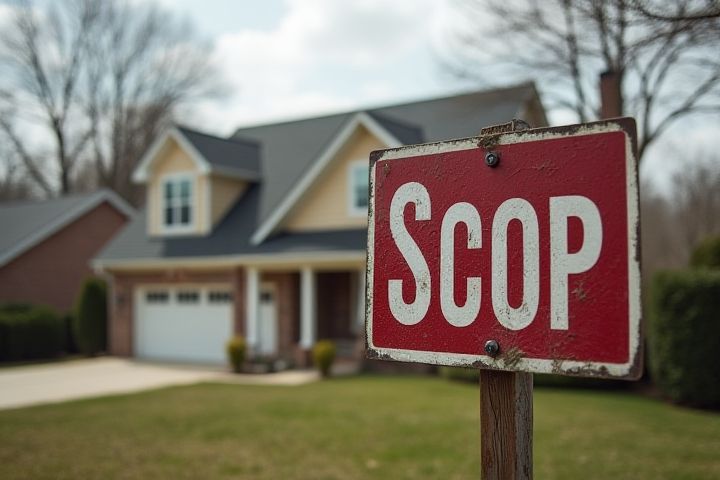
House zoning laws are essential for regulating land use and ensuring that communities develop in an organized manner. These laws dictate what types of buildings can be constructed in specific areas, influencing residential, commercial, and industrial layouts. By establishing zoning regulations, municipalities can maintain property values, protect the environment, and ensure adequate public services, such as schools and transportation. You can benefit from understanding these laws, as they affect your property rights, development potential, and neighborhood character. Compliance with zoning regulations is crucial for avoiding legal issues and ensuring a harmonious community.
Why House Zoning Laws Matter
Regulate Land Use
House zoning laws are crucial for regulating land use, ensuring that residential, commercial, and industrial areas are appropriately designated. These laws prevent incompatible developments, such as factories being built next to homes, which can lead to safety hazards and reduced quality of life. By establishing clear guidelines, zoning laws help maintain property values, promoting sustainable urban growth and efficient land management. Understanding these regulations can empower you to make informed decisions about property investments and community planning.
Preserve Property Values
House zoning laws are crucial for preserving property values in any community. By regulating land use, they prevent incompatible developments, such as commercial businesses overshadowing residential areas, which can negatively affect home prices. Consistent zoning enhances neighborhood appeal, creating a stable environment that attracts potential buyers and investors alike. As a homeowner, understanding these regulations can help you make informed decisions that protect your property investment.
Ensure Community Safety
House zoning laws play a crucial role in ensuring community safety by regulating land use and maintaining neighborhood integrity. These regulations dictate where residential, commercial, and industrial activities can occur, minimizing conflicts and hazards associated with incompatible land uses. For example, zoning laws can prevent high-density housing developments from being built next to factories or highways, reducing noise pollution and traffic congestion. By promoting orderly community development, these laws help protect property values and enhance the overall quality of life for residents, ensuring a safer environment for families and individuals.
Manage Population Density
House zoning laws play a crucial role in managing population density by designating specific areas for various types of development, such as residential, commercial, and industrial. By regulating land use, these laws help to control the number of housing units in a given area, which can effectively prevent overcrowding and maintain community infrastructure. For instance, cities with strict zoning regulations often exhibit lower population density, leading to improved quality of life, reduced traffic congestion, and increased access to public services. Understanding these laws can empower you to advocate for balanced development that accommodates population growth while preserving community integrity.
Influence Urban Planning
House zoning laws significantly influence urban planning by regulating land use, residential density, and building types within a community. These regulations can determine the types of housing developments allowed, impacting the availability of affordable housing in urban areas where the demand often exceeds supply. By specifying zoning classifications--such as residential, commercial, and industrial--communities can establish a balance between different land uses, thereby enhancing livability and reducing congestion. Understanding these laws is crucial for anyone involved in real estate or urban development, as they directly affect property values and neighborhood dynamics.
Protect Natural Resources
House zoning laws play a crucial role in protecting natural resources by regulating land use and development. These regulations ensure that environmentally sensitive areas, such as wetlands, forests, and bodies of water, are preserved from overdevelopment and pollution. By implementing zoning restrictions, municipalities can maintain biodiversity and safeguard ecosystems that provide essential services, including air and water purification. Understanding your local zoning laws allows you to advocate for sustainable practices that protect the environment and enhance community resilience against climate change.
Control Noise Levels
House zoning laws are essential in regulating noise levels within residential areas, aiming to create a tranquil living environment. By designating specific zones for various purposes, such as residential, commercial, and industrial, these laws prevent disruptive activities, maintaining acceptable sound thresholds. For instance, in a zone designated for single-family homes, loud commercial operations are prohibited, thereby safeguarding residents from excessive noise pollution. Understanding local zoning regulations can help you ensure that your neighborhood remains peaceful and conducive to quality living.
Facilitate Infrastructure Development
House zoning laws play a crucial role in facilitating infrastructure development by designating specific land uses, which guides where essential services such as roads, utilities, and public transportation can be effectively implemented. By creating defined zones for residential, commercial, and industrial areas, these laws help ensure that infrastructure projects align with community needs and growth patterns. You can benefit from understanding that properly zoned areas attract investment and enhance property values, as they promote efficient planning and resource allocation. Moreover, zoning laws help local governments prioritize infrastructure improvements, ensuring that necessary services are available to meet the demands of a growing population.
Encourage Mixed-Use Areas
House zoning laws play a crucial role in shaping vibrant communities by encouraging mixed-use areas, which blend residential, commercial, and recreational spaces. These zones foster walkable neighborhoods, reducing reliance on cars and promoting local businesses, enhancing economic growth. By integrating housing with shops, parks, and services, zoning laws create social interaction hubs that improve quality of life for residents. You can experience the benefits of mixed-use areas through increased convenience, a sense of community, and a more sustainable lifestyle.
Prevent Overcrowding
House zoning laws play a crucial role in preventing overcrowding by regulating land use and ensuring that residential areas are developed sustainably. These laws establish the maximum density allowed in specific regions, limiting the number of housing units that can be built on a given plot of land. For instance, zoning regulations might designate certain areas as single-family homes, restricting multi-family apartments that could lead to population surges. By maintaining balanced growth, zoning laws help to preserve community resources, infrastructure, and the overall quality of life for residents.
